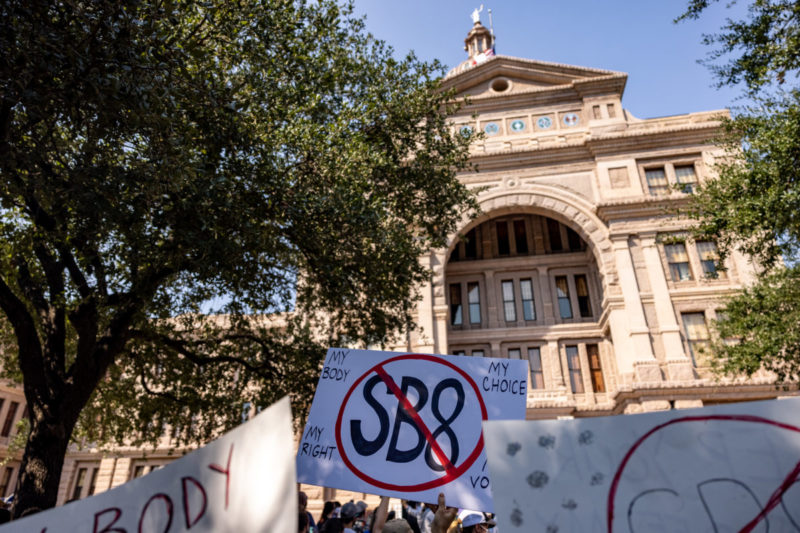A Texas-Style Abortion Ban in Florida Would Be Particularly Devastating to the South
Wanting in on the abortion bounty action, a Florida Republican is the first state lawmaker to file a Texas SB 8 copycat bill.

A Republican state lawmaker in Florida has proposed a six-week abortion ban that mirrors the vigilante enforcement of Texas SB 8. The bill, HB 167, was filed last Wednesday, and it’s the first such copycat law to be officially introduced in a state legislature. But we know it won’t be the last.
Conservative lawmakers in states like Arkansas and South Dakota have said they want in on the abortion bounty action. In fact, Republican lawmakers in at least 11 states have announced intentions to consider laws modeled on SB 8. Florida is just the first to actually make good on that promise. (Good being a relative term, here.)
While plenty of states have passed unconstitutional gestational bans over the years, including six-week bans that prohibit abortion after embryonic cardiac activity can be detected, what makes SB 8 distinct is the bounty hunting provision. Like the Texas law, the Florida bill would deputize any citizen to sue abortion providers or anyone who helps someone get an abortion.
What does this abortion bounty hunting look like in practice? Rewire News Group‘s SVP and Executive Editor Jessica Mason Pieklo breaks it down in the latest edition of The Fallout, our newsletter dedicated exclusively to the fall of Roe v. Wade (subscribe to The Fallout here). Pieklo writes:
The thing about Texas’ abortion bounty law is that it throws most traditional legal notions out the window. There should be no universe in which an attorney-felon from Arkansas, a disbarred attorney from Illinois, and an anti-abortion domestic terrorist from Kansas can sue to enforce an abortion ban in Texas. Yet that’s exactly what happened this week, as the first lawsuits under Texas SB 8 trickled in.
Not one but three different legal complaints have been filed against Texas abortion provider Dr. Alan Braid by the folks above, after the doctor announced that he’d provided an abortion in violation of the law (more on that later in this newsletter).
But this is where things get even weirder, so stay with us. The two disgraced attorneys claim that they are both pro-choice and have filed their complaints in the hopes of having SB 8 declared unconstitutional.
Florida is also a critical state in the ongoing attacks on abortion access in the United States. If the Supreme Court upholds Mississippi’s 15-week ban when it rules on Jackson v. Women’s Health Organization in the summer, Florida is expected to see an influx of patients from neighboring states. As Susan Rinkunas wrote for Rewire News Group:
Abortion patients travel into Florida for multiple reasons: The clinics may be closer, their home state restricts abortion after 20 or 22 weeks after the last menstrual period, or news reports about state legislation can lead people to think abortion is already banned in their state.
HB 167 has already been criticized by Florida’s incoming state senate president, a firmly anti-choice Republican, and it’s unlikely to progress very far in the legislature. But any additional abortion restrictions would jeopardize Florida’s status as a haven for abortion access in the South.
This post was adapted from a Twitter thread.
